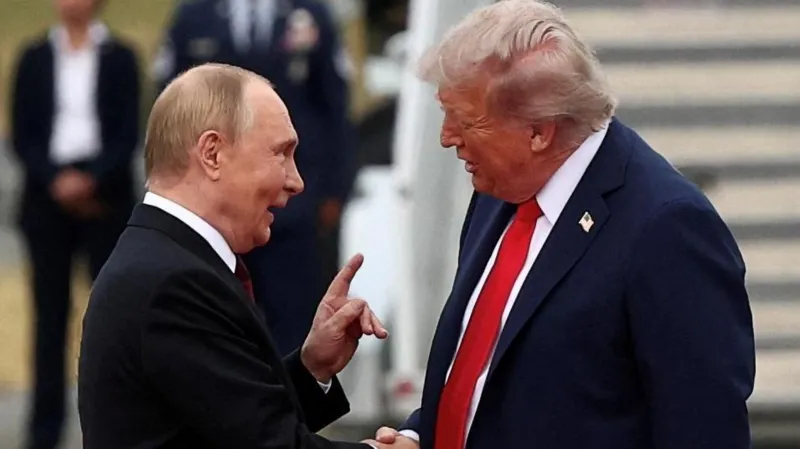Trump’s Budapest Peace Summit Canceled Amid Deep Diplomatic Rift
Plans for a highly anticipated summit between U.S. President Donald Trump and Russian President Vladimir Putin have been abruptly shelved, ending speculation about a potential meeting in Budapest aimed at addressing the ongoing war in Ukraine. A senior White House official confirmed that “no plans” exist for such talks in the immediate future, citing “significant unresolved differences” between Washington and Moscow over the conditions for peace. The Trump-Putin meeting, which could have had significant implications, remains canceled amidst the ongoing Ukraine conflict.
Trump had announced last week that the two leaders would meet within a fortnight to discuss a framework for ending the war. Preparations were reportedly underway, with Secretary of State Marco Rubio expected to meet Russian Foreign Minister Sergei Lavrov. However, U.S. officials later clarified that a phone conversation between the two diplomats was “productive enough” to make an in-person meeting unnecessary.
Analysts say this decision reflects a growing recognition that Russia’s demands remain incompatible with Western peace efforts. According to the Council on Foreign Relations, Moscow continues to insist on Ukrainian military withdrawal from Donetsk and Luhansk — areas known collectively as the Donbas — while Kyiv maintains that conceding these territories would only embolden future Russian aggression. Acknowledging this, the cancellation shows the deep conflict over Ukraine is central to the diplomatic stalemate.
The Disagreement Over Ukraine’s Future
Trump’s recent comments in support of a “front-line freeze” — a ceasefire proposal backed by Ukraine and European allies — appeared to signal a shift toward a more pragmatic approach. “Let it be cut the way it is,” Trump said, referring to halting combat along existing positions. “Stop fighting, stop killing people.” However, Russian officials quickly rejected this idea, calling it a temporary solution that fails to address what they describe as the “root causes of the conflict.” These cancellations underline the broader context: a deep disagreement linked to the conflict in Ukraine.
Kremlin spokesperson Dmitry Peskov reiterated Moscow’s position that any peace agreement must include recognition of full Russian sovereignty over Donbas and the demilitarization of Ukraine — conditions Western diplomats say are unacceptable. Foreign Minister Lavrov reinforced this stance, saying that Russia was seeking a “sustainable, long-term peace” rather than a short-lived truce.
European leaders, in a joint statement with President Volodymyr Zelensky, supported the front-line freeze as a “necessary first step” toward diplomacy. The European Council emphasized that any talks on ending the war should begin from the current battlefield realities, accusing Russia of lacking “serious intent” toward genuine peace.
Behind the scenes, sources suggest that the proposed Budapest summit fell apart because Washington recognized it would not yield meaningful progress. A European diplomat noted that “the Russians wanted too much,” adding that the U.S. realized “there will be no deal for Trump in Budapest.” Thus, the Trump Putin meeting cancels due to the unresolved Ukraine conflict.
Weapons, Diplomacy, and a Shifting Balance of Power
Zelensky has framed discussions about the front line as the “beginning of diplomacy,” though he acknowledged that Moscow is avoiding genuine dialogue. The Ukrainian president asserted that the only factor compelling Russia to engage was the potential delivery of long-range weapons from the United States. Reports indicate that Washington has considered supplying Tomahawk cruise missiles to Kyiv, capable of striking deep inside Russian territory. In light of this, the Trump and Putin meeting involving Ukraine conflict topics seems even more crucial yet remains canceled.
According to the U.S. Department of Defense, the decision to send such weapons remains under review, with officials weighing the risks of escalation against Ukraine’s strategic needs. Putin’s unexpected phone call to Trump last week is believed to have been triggered by these reports, which have raised alarms in Moscow about a new phase of the conflict.
While Trump’s team has not ruled out future dialogue, officials now believe any direct meeting with Putin would be premature. The cancellation of the Budapest summit underscores a growing realization within Washington that Russia’s objectives are incompatible with Western expectations for peace.
As diplomacy stalls, Europe faces increasing pressure to sustain its support for Ukraine amid rising economic costs. The NATO alliance continues to reinforce its eastern flank, while calls grow for a more unified strategy toward Russia.
The collapse of the proposed Trump-Putin summit not only highlights the widening gulf between the two powers but also signals that any near-term resolution to the war remains elusive. With the front lines largely static and casualties mounting, the geopolitical balance in Eastern Europe is now entering one of its most uncertain phases since the conflict began.
The failure of the Budapest initiative serves as a stark reminder that despite diplomatic gestures, the path to peace remains obstructed by uncompromising positions and deeply rooted mistrust on all sides.



